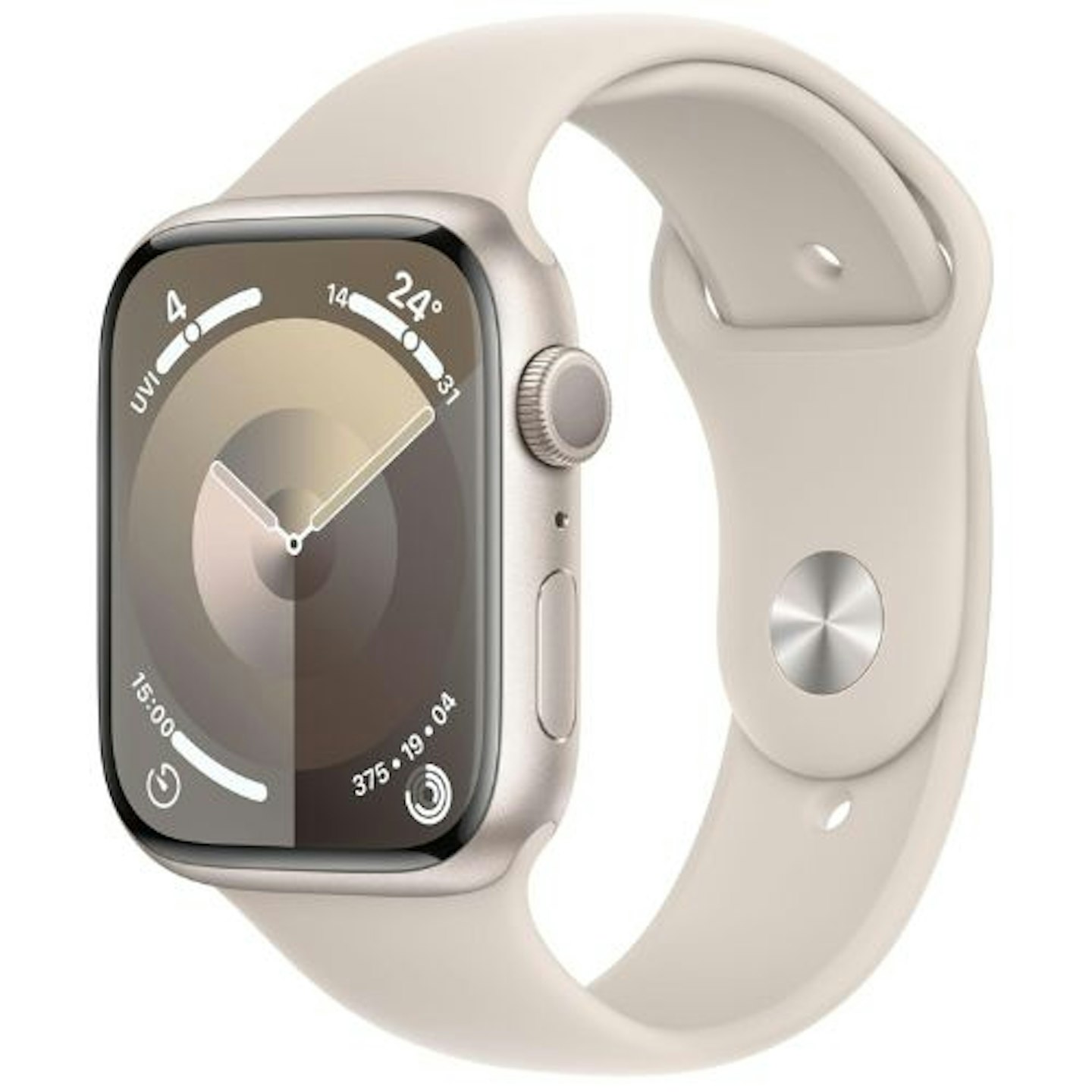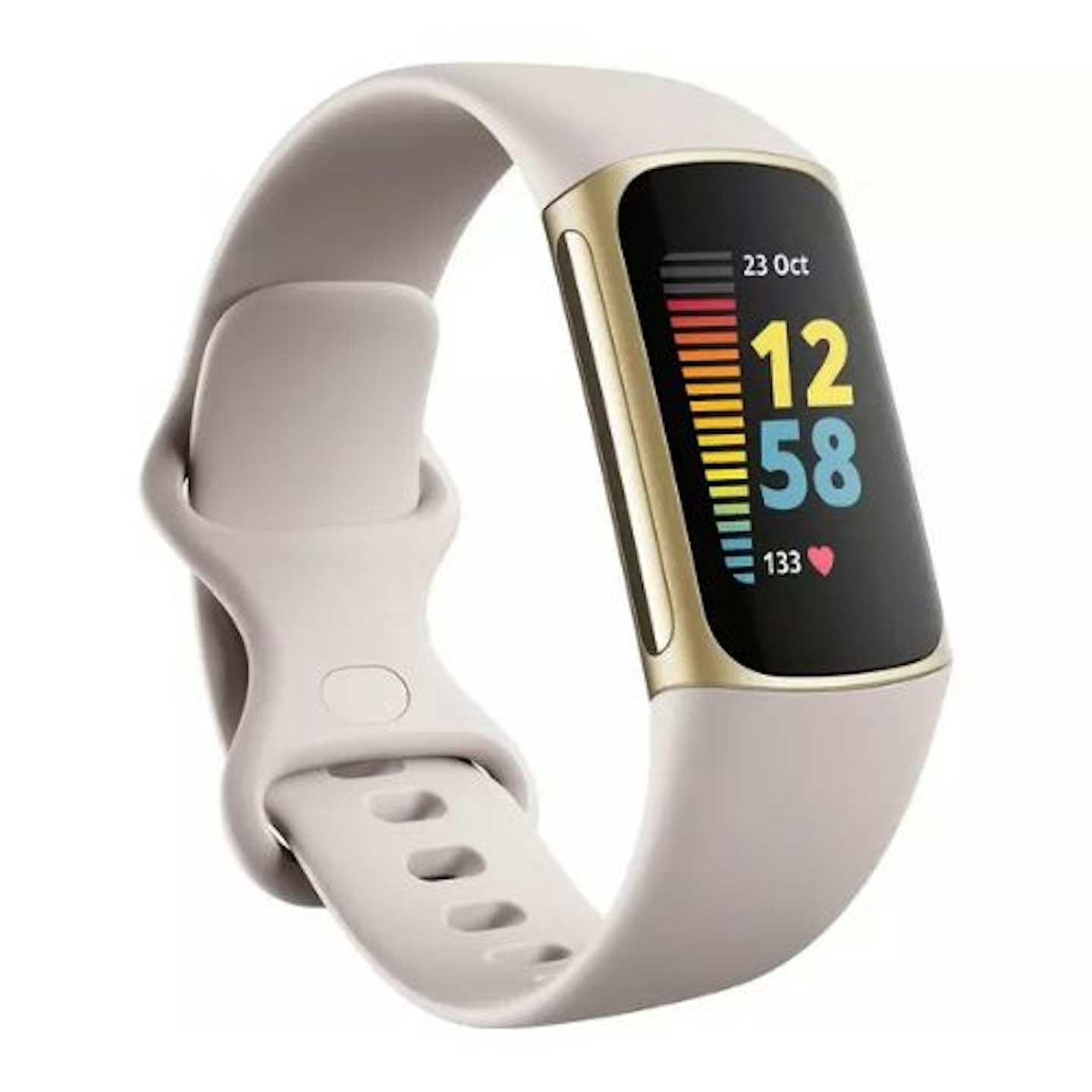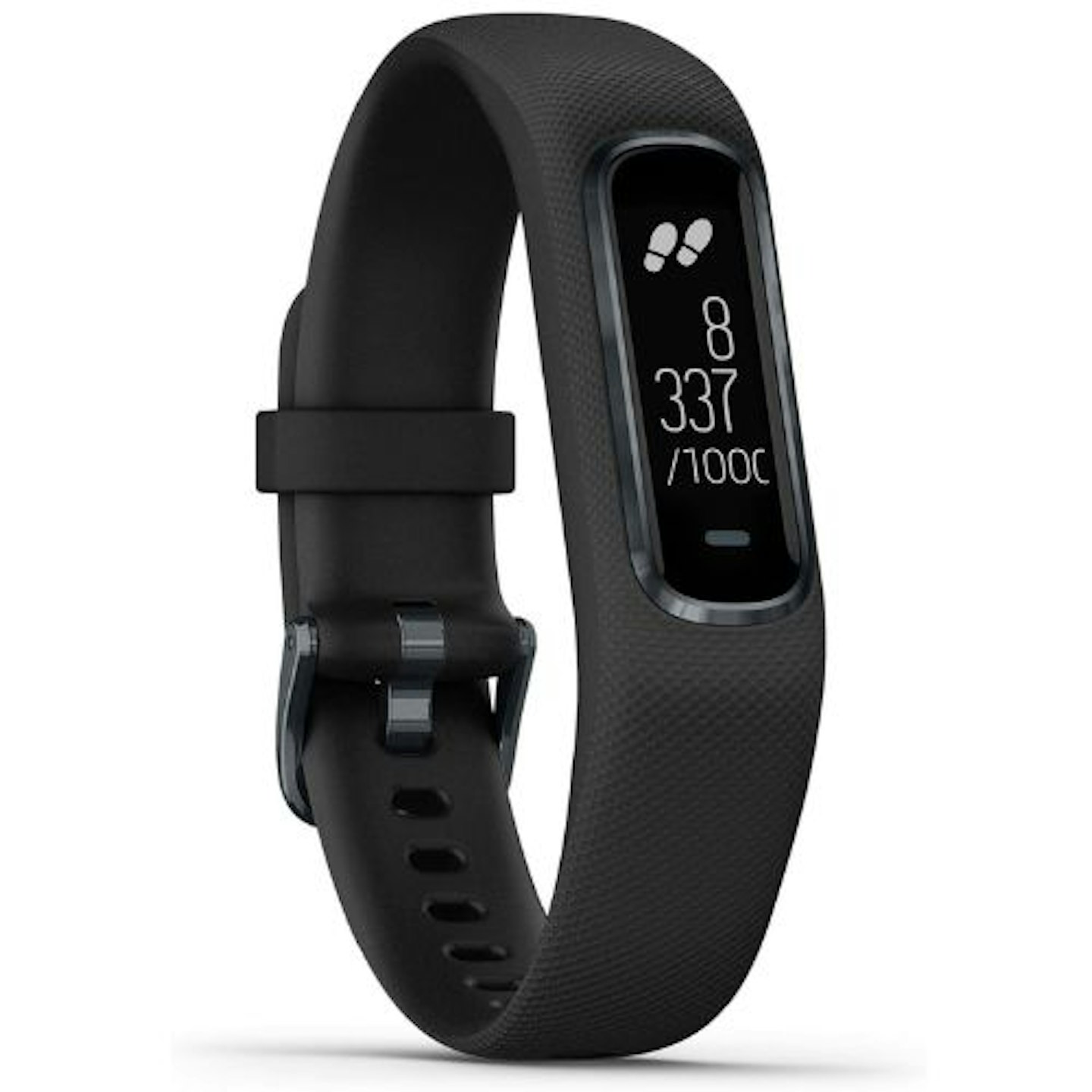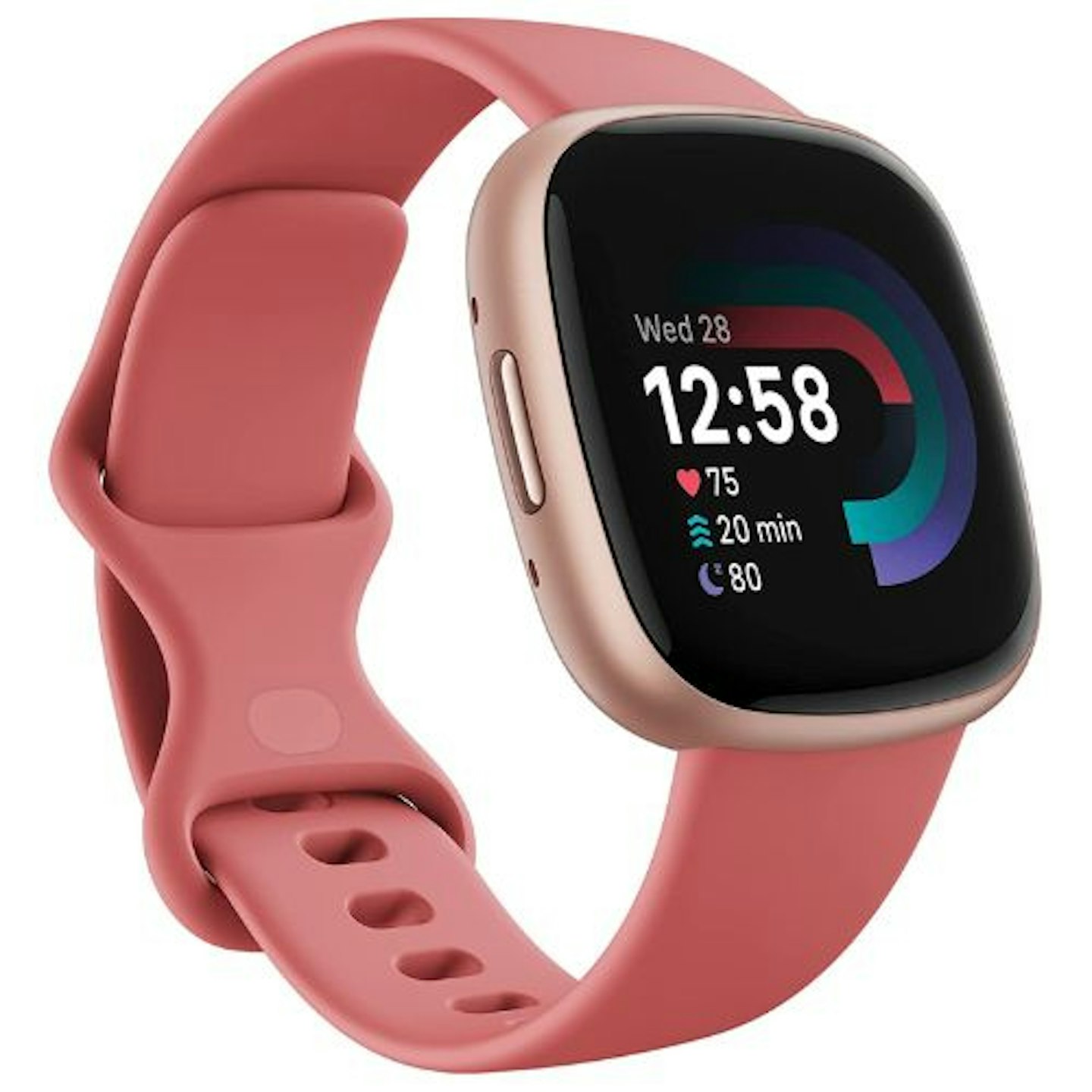Maintaining an active and healthy lifestyle increasingly becomes more vital as we get older, but thanks to the best fitness trackers, it is now easier and more accessible than ever to keep an eye on our health. Whether you simply want to see how many steps you’re doing in a day or need to closely monitor your heart rate, there’s a fitness tracker to suit whatever fitness level you want to note.
Ageing naturally changes your body and as you start to slow down, you may find your joints and bones become weaker and your muscles aren’t as strong as they used to be. You’re also more at risk of heart disease and high blood pressure as you get older. Upping our exercise levels as we approach our twilight years can help improve your physical health as well as your mental well-being. You can join group exercise sessions with like-minded people, take some time out of your day to do an activity you love, or get outside and enjoy being surrounded by nature to feel the benefits. As it’s so important to keep an eye on our health as we get older, a fitness tracker will come in handy for logging what you do and documenting your progress.
Best fitness trackers at a glance:
Wearable exercise monitor technology has improved over time. Now the best fitness trackers come packed full of features that can do pretty much everything. From taking note of your oxygen levels and pulse oximeter readings to tracking lengths you’ve swam and calories you’ve burnt. You can also keep an eye on how much sleep you're getting and the quality of it too. Not to mention, these watches are often connected to your smartphone so you can get notifications of calls, texts, emails and so much more.
From top-notch Fitbits to more budget trackers from other respected watch brands in the fitness scene, we’ve searched the web to bring you the best fitness trackers to help you achieve your fitness goals this 2024.
Best fitness trackers 2024
Best high-end fitness tracker
 Amazon
AmazonWe love the Apple Watch Series 9. If you've already got an iPhone, it offers seamless integration with your phone, plus advanced health monitoring and an oh-so-sleek design. Thanks to its built-in sensors, you can keep an eye on your blood oxygen levels, take an ECG anytime and get notifications if you have an irregular heart rhythm. It also has fall and crash detection so it can connect you with emergency services in the event of a hard fall or a serious crash. It’s crack-resistant, IP6X-certified dust-resistant and swim-proof with 50mm water resistance. It’s a more luxury product but definitely worth its price tag.
Customer review: "Absolutely love my new Apple watch. It is stylish and although quite chunky it doesn't feel heavy on my wrist. It has so many functions that make my life easier, such as reminders to take my medication and alerts for events on my calendar. I'm sure I will find it does lots more the longer I have it. Battery life is not bad, I'm charging every other day. All in all, I'm very impressed."
Pros
- Built-in advanced health sensors
- Very tough and water-resistant
- Bright, easy-to-read display
Cons
- Battery life isn't as good as other fitness trackers
| Display: | 44mm, Always-on Retina screen |
| Size: | S/M (fits 140-190mm wrists), M/L (fits 160-210mm wrists) |
| Battery capacity: | Up to 18 hours, On low power mode up to 36 hours |
| Additional features: | Emergency SOS, Fall and crash detection, Water resistance, Temperature sensing, Double tap gesture, Faster on-device Siri, Low cardio fitness notifications, Irregular rhythm notifications |
Best overall
 Currys
CurrysIf you're looking for a fitness tracker with plenty of features but not quite an all-singing and-dancing smartwatch, the Fitbit Charge 5 is a good place to start. Boasting integrated GPS, it monitors steps, distance, calories, sleep and so much more. It's also got electrical sensors on the side for ECG and EDA scan functions so you can keep track of your heart health and monitor stress levels. The matte 'infinity' strap gives it a sleek and sophisticated look, which complements the vibrant display, making the Fitbit Charge 5 a great option for those looking for a tracker that combines style and functionality.
Our review: "If you are conscious about your health and monitoring your heart rate, without question the Charge 5 is worth it. Personal preference on style and design, also factors in with the Charge 5 more aesthetically pleasing on the eye, with its sleek rounded edges, a gold, silver, or black metallic trim and the snug infinity watch strap, not forgetting the OLED colour display are huge bonuses when investing in a fitness tracker."
Read our full Fitbit Charge 5 review to learn more about this tracker.
Pros
- Impressive battery life
- Snug watch strap
- Bright OLED screen
Cons
- Touch sensitivity quality could be better
| Display: | OLED |
| Size: | Yes |
| Battery capacity: | Up to 7 days |
| Additional features: | Built-in GPS, Bluetooth |
Best fitness tracker for pulse oximeter
 Amazon
AmazonSilm and incredibly smart, the Garmin Vivosmart 4 blends fashionable design with stylish metal accents and a bright easy-to-read display. It offers more than just your basic fitness tracking, with a focus on your physical and mental wellbeing, including REM sleep monitoring, Pulse Ox sensor for night oxygen levels, and stress tracking. It’s safe for swimming and showering and can be used for logging data for activities such as walking, running, strength training, cardio, and yoga.
Customer review: "It’s honestly made a huge impact on my health and it's so easy to monitor everything. I wanted something that was discreet on my wrist and it's such an amazing gadget…"
Pros
- Discreet design
- Accurate measurements
- Records a wide range of health and wellness data
Cons
- May be not the best fitness tracker for those who struggle to see small screens and displays
| Display: | OLED |
| Size: | Small/medium: 15 x 10.5 x 197mm, Large: 15 x 10.5 x 223mm |
| Battery capacity: | Up to 7 days |
| Additional features: | Pulse oximeter, Bluetooth, compatible with Android and Apple, menstrual tracking |
Best fitness tracker for swimming
If you're after a fitness tracker that can be used to track swimming, the Fitbit Inspire 3 Activity Tracker really makes a splash. It's water-resistant up to 50m and the battery can last up to five days before it needs to be popped on charge. When you're not practising your front crawl, this sleek Fitbit offers all-day activity tracking, heart-rate monitoring, sleep tracking and calorie burn, as well as reminders to move and automatic exercise recognition.
Customer review: "I absolutely love this Fitbit, it’s great for swimming and gym workouts. It helps to motivate me to walk more and it’s a great watch. The charge lasts over a week and it’s not heavy. I also love the sleep tracking which was a nice surprise. I would highly recommend this to anyone who doesn’t want an overly complicated fitness tracker."
Pros
- Easy to use
- Lightweight
- Automatic activity tracking
Cons
- Smaller screen compared to other fitness trackers
| Display: | OLED |
| Size: | 3.93 x 1.86 x 1.17 cm |
| Battery capacity: | Up to 10 days |
| Additional features: | Changeable strap, SpO2 check, Android and iOS compatible |
The Fitbit Versa 4 packs in an awful lot of features. With its built-in GPS, it's great for those who want to track their runs as you can see your pace, distance and heart rate zones in the Fitbit app, but you can also record workouts including strength training, kayaking and more with 40+ exercise modes. You can sync it to your phone to get notifications for calls, texts and calendar events so you can seamlessly go from running to running your day.
Our review: "As someone who dabbles with fitness on a weekly basis, I personally find that the Fitbit Versa 4 more than meets my requirements for a smartwatch. I like how it looks, that the battery life is decent and that it's easy to use with some nifty features thrown in."
Discover more in our full Fitbit Versa 4 review.
Pros
- 40+ exercise modes
- Built-in GPS
- Great smartphone connectivity
Cons
- Reviews have mixed opinions on the accuracy
| Display: | 1.58" digital display |
| Size: | 4.03 x 4.03 x 1.12cm |
| Battery capacity: | 6+ days of battery |
| Additional features: | daily Stress Management Score, reflection logging, SpO2 |
FAQs
What does a fitness tracker do?
Essentially, fitness trackers are smart devices that monitor various aspects of your physical activity. Whether you want a tracker for going cycling, engaging in running, practising Yoga or doing a HIIT workout, the best fitness trackers will be able to monitor all this and more. They can keep tabs on your steps and the distance you’ve covered as well as analyse your heart rate and calculate calories burnt.
With the advanced technology available on a wide variety of fitness trackers, many go beyond these basic functions and offer features such as sleep monitoring and oxygen level tracking. As fitness trackers store and log this data, they’re a great tool for keeping an eye on your health and recording any changes. In order for them to get correct readings, you will need to add personal details like height, weight and age so you can make sure the results you are seeing are accurate.
What’s the difference between a fitness tracker and a smartwatch?
As you can probably guess by the name, fitness trackers are mainly focused on monitoring your physical activity, heart rate and other health-related metrics. Whereas smartwatches offer fitness features alongside additional functionalities like answering calls, playing music and receiving messages. In a nutshell, most smartwatches are fitness trackers but not all fitness trackers are smartwatches. Fitness trackers tend to be cheaper compared to smartwatches so when you’re deciding what type will be better for you, think about the type of features you want. If you want an all-singing, all-dancing tracker, consider a smartwatch but if you want it to simply monitor your fitness, a fitness tracker may be perfect for you.
What are the key features to look for in the best fitness trackers?
As we’ve mentioned above, when you’re looking for the best fitness tracker for your needs, you’ll want to think about what you actually want to use it for and whether your chosen model has the features needed to align with your health and fitness needs. Here are just some of the key features you’ll want to consider:
**Battery life:
**Of course, the longer the battery life, the better. However, you’ll want to bear in mind that fitness trackers that are also smartwatches with lots of features may need more battery to run them all. For example, you may end up needing to charge a smartwatch daily but a fitness tracker every couple of days.
**Screen size:
**When it comes to deciding what screen size you need, you’ll want to find a balance between ease of use and avoiding bulkiness. If you find it hard to see and read screens, the best fitness tracker for you may be one with a slightly bigger screen.
**Toughness:
**When assessing your chosen tracker’s toughness and longevity, a big factor in this is the materials used to make it. Many fitness trackers come with silicone straps to offer more flexibility and durability, but many offer options to buy different straps so you can customise them to your needs and personal style. You’ll want to make sure that, whatever materials your chosen fitness tracker is made from, you’ll be able to use it for your chosen activity.
**Waterproofing:
**If you want to use your tracker for swimming or any other water-related activities, make sure your chosen fitness tracker is waterproof. The standard level that fitness trackers are water resistant to is down to 50 metres (5ATM) but some models may vary, so it’s definitely a feature to double-check.
**App connectivity:
**You’ll want to check the level of integration your chosen tracker has with your phone and other fitness app. Most fitness trackers will require a smartphone to work as they have a corresponding app where the data collected is logged. Many fitness trackers also can be integrated with other fitness apps, such as Strava, to give you more versatility.
**GPS:
**While not strictly needed in most cases, it can be a bonus to have built-in GPS as a feature. It can offer more accurate tracking and you can see what routes you’ve taken on walks, runs and cycles. If GPS isn’t built in, you may find that some trackers offer GPS connectivity via your smartphone and an app as an alternative.
Rosie Floyd is a Pets, Homes and Garden Product Writer for Yours, specialising in home appliances, décor and furnishings, as well as all things dogs. After completing her Journalism & Media degree from Coventry University back in 2015, she started her career writing about must-visit holiday destinations, moving on to creating content around outdoor living and garden buildings, before joining the team at Bauer.



